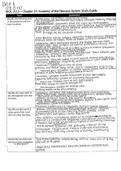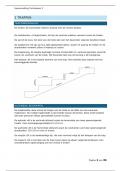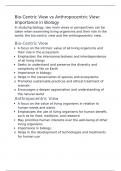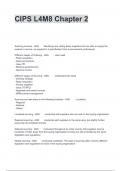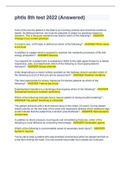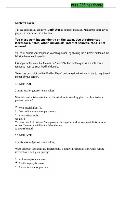Midterm MIP
Lecture 1
Explaining mobility drivers
Lecture outline
Explaining mobility drivers
› Drivers on micro level
› Drivers on macro level
› Interaction between micro and macro level
Main questions to answer
• › Which factors in uence mobility at both macro and micro level?
• › How is individual mobility behaviour explained by geographers, economists and
behavioural scientists?
• › What are the similarities and di erences between these three perspectives?
• › How do the macro and micro level interact with each other?
The concept of ’Mobility’
In the context of transportation planning, mobility has been de ned as the potential for
movement, the ability to get from one place to another (Hansen 1959; Handy 1994). Main purpose
of movement: access to opportunities
‘Good’ mobility versus ‘Poor’ mobility
Mobility indicators
Examples:
› Number of trips
› Distance (km)
› Mode of transport › Mode share
Further de ned by:
› Geographical scale
› Characteristics traveler › Time period
› Travel motive
› Urbanization level
› ....
Demand and Supply
Interaction macro- and micro-level
Relation with transportation models! Dijst, Rietveld and Steg, 2013, p. 26
Three perspectives on explaining travel choice behaviour:
› Economic
› Behavioural
› Geographical
Travel: some principles
› Travel is a ‘derived demand’ (Banister, 2008).
› The reason to travel is derived from the utility of an activity
at another location.
› Intrinsic value of traveling
fi fl ff fi
, Travel choice behaviour
Development of (travel) choice behaviour models:
- ‘Reasoned’ behaviour (economic)
- Plus ‘unreasoned’ behaviour (behavioural)
- Plus spatial-temporal constraints and opportunities (geographical)
Awareness of di erent variables that in uence mobility is important: models are complementary
Economy
› Reasoned, rational choice making
› Quantitative (modeling approach)
› Ordening of alternatives
› Best alternative: Cost - Bene t ratio
Microeconomic utility theory
Utility theory
Travel: yes/no
› 3 components
▪ Bene t activity location j NJ
▪ Bene t stay at home i Ni
▪ Costs: transport resistance travel from i to j Zij › Travel when NJ-Ni-Zij > 0
Transport resistance: cost, time, e ort = Individual Generalized Transportation Costs
Elasticities
Price elasticity Travel time elasticity Income elasticity
Example: The price elasticity of demand for kilometers = the percentage change in demand when
the price per kilometer increases by 1%
Travel resistance: Travel time
fi ff fi ff fl
, Theory Constant travel time budgets
▪ Travel time budgets remain relatively constant on average on country level
▪ Average travel time per person per day +/- 66 min.
▪ This implies: when travel time decreases, people travel longer distances.
Why?
Travel resistance: e orts
Travel resistance: costs
Re ection economic approach
› Simpli ed: ... behavioural economic approach missing
› Data availability is relatively high
› Input for predictions, modeling
› Accuracy? Validation needed
Behavioural approach:
reasoned and unreasoned factors
Psychology & Sociology
› Explain human behaviour (psychology) within groups, society (sociology)
› Behaviour is individually and socially driven.
› Models consists of di erent variables that explain choice making and behaviour
fl
fi ff ff
Lecture 1
Explaining mobility drivers
Lecture outline
Explaining mobility drivers
› Drivers on micro level
› Drivers on macro level
› Interaction between micro and macro level
Main questions to answer
• › Which factors in uence mobility at both macro and micro level?
• › How is individual mobility behaviour explained by geographers, economists and
behavioural scientists?
• › What are the similarities and di erences between these three perspectives?
• › How do the macro and micro level interact with each other?
The concept of ’Mobility’
In the context of transportation planning, mobility has been de ned as the potential for
movement, the ability to get from one place to another (Hansen 1959; Handy 1994). Main purpose
of movement: access to opportunities
‘Good’ mobility versus ‘Poor’ mobility
Mobility indicators
Examples:
› Number of trips
› Distance (km)
› Mode of transport › Mode share
Further de ned by:
› Geographical scale
› Characteristics traveler › Time period
› Travel motive
› Urbanization level
› ....
Demand and Supply
Interaction macro- and micro-level
Relation with transportation models! Dijst, Rietveld and Steg, 2013, p. 26
Three perspectives on explaining travel choice behaviour:
› Economic
› Behavioural
› Geographical
Travel: some principles
› Travel is a ‘derived demand’ (Banister, 2008).
› The reason to travel is derived from the utility of an activity
at another location.
› Intrinsic value of traveling
fi fl ff fi
, Travel choice behaviour
Development of (travel) choice behaviour models:
- ‘Reasoned’ behaviour (economic)
- Plus ‘unreasoned’ behaviour (behavioural)
- Plus spatial-temporal constraints and opportunities (geographical)
Awareness of di erent variables that in uence mobility is important: models are complementary
Economy
› Reasoned, rational choice making
› Quantitative (modeling approach)
› Ordening of alternatives
› Best alternative: Cost - Bene t ratio
Microeconomic utility theory
Utility theory
Travel: yes/no
› 3 components
▪ Bene t activity location j NJ
▪ Bene t stay at home i Ni
▪ Costs: transport resistance travel from i to j Zij › Travel when NJ-Ni-Zij > 0
Transport resistance: cost, time, e ort = Individual Generalized Transportation Costs
Elasticities
Price elasticity Travel time elasticity Income elasticity
Example: The price elasticity of demand for kilometers = the percentage change in demand when
the price per kilometer increases by 1%
Travel resistance: Travel time
fi ff fi ff fl
, Theory Constant travel time budgets
▪ Travel time budgets remain relatively constant on average on country level
▪ Average travel time per person per day +/- 66 min.
▪ This implies: when travel time decreases, people travel longer distances.
Why?
Travel resistance: e orts
Travel resistance: costs
Re ection economic approach
› Simpli ed: ... behavioural economic approach missing
› Data availability is relatively high
› Input for predictions, modeling
› Accuracy? Validation needed
Behavioural approach:
reasoned and unreasoned factors
Psychology & Sociology
› Explain human behaviour (psychology) within groups, society (sociology)
› Behaviour is individually and socially driven.
› Models consists of di erent variables that explain choice making and behaviour
fl
fi ff ff


